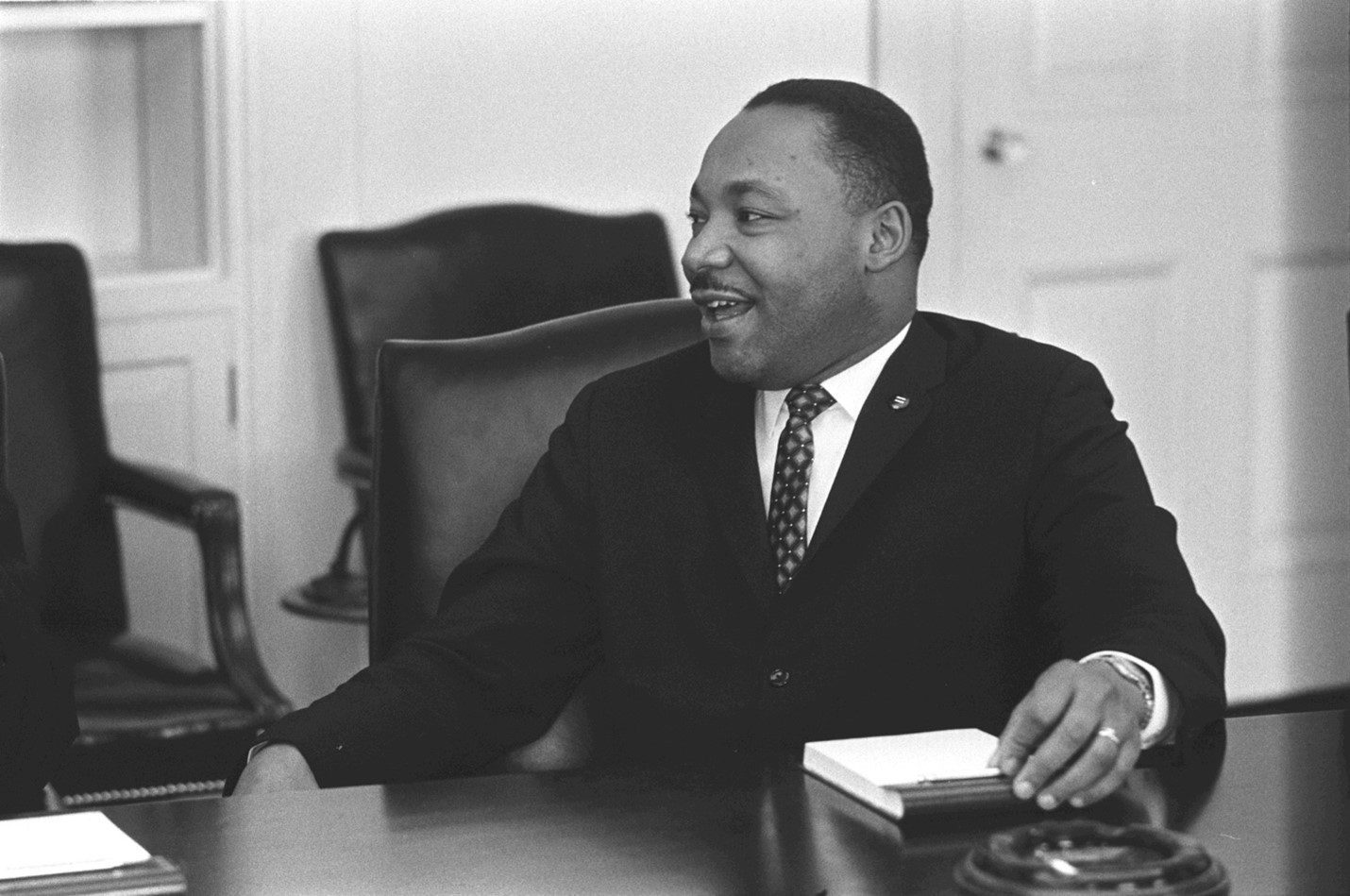Episode Transcript
Kyle: Welcome to another edition of Wit, Wisdom, and What Matters Most. It’s a podcast with Moneta’s Gast Freeman Troyer Racen Team.
My name is Kyle Luetters; I am joined by Danton Troyer. And, Danton, on this episode, someone that we’ve gotten to know here as of late, we’ve been able to work together a bit, is Scott Stork, an estate planning attorney with Polaris Law Group here in the St. Louis area. And I thought a really interesting conversation with a key moment that folks will hear about, about how he decided to truly pursue estate planning.
Danton: Yeah, it’s one of the most chilling and maybe motivating “whys” out there, especially for a career and kind of getting that going as well. And then talking about how you balance that with family and just the day-to-day that is life. So, a great, great interview with Scott and just talking about how he’s been able to achieve his success.
Kyle: And here’s our conversation with Scott Stork.
And welcoming to Wit, Wisdom, and What Matters Most, it is Mr. Scott Stork. Scott, welcome to the podcast today.
Scott: Thank you very much. I appreciate being here.
Kyle: This has been a long time coming. We met each other here a while back, had a wonderful cup of coffee at Picasso’s, talking shop. And then, kind of throughout our journeys together, we got to learn more about one another’s businesses and our practices.
So, you know, for everyone that is taking the time to listen to this, kind of describe your background, like where you came from, how did you get into estate planning, and how did basically, how did we get here?
Scott: Okay, yeah, absolutely. So, I’ve been a lawyer for longer than I care to admit. So, since 2002, which I think makes me very officially middle-aged.
So, I actually didn’t start out my career doing this. I never had any idea I would be doing this. I spent the first half of my legal career as a prosecuting attorney between Virginia and here in Missouri, and did that for quite a long time and did a lot of trial work and litigation and things like that.
And when I went into private practice, I had anticipated I was going to stay doing litigation and trials and all of the things that I really liked to do. But through kind of a confluence of events, I started to do, to dabble, I would say, in estate planning, which a lot of people in private general practice do.
And I had a friend that got very sick. He was 35, so he was certainly not old. He got cancer. And kind of a long story short, we ended up signing some of his estate planning documents the day he passed away in the hospital.
And that had an enormous effect on my complete outlook on everything. I realized that nothing that I had done up to that point with him made any difference as far as his family’s future or anything like that. And so I made the decision basically right there that I wanted to focus on estate planning and not do litigation anymore. And that was pretty much the change in my practice and I’ve been doing estate planning as the only thing that I that I do ever since.
Kyle: Yeah, that’s incredible that you have that story. And for a lot of people that get into business, especially entrepreneurs, there’s like a seminal moment that you really, that like a switch flips. And you may not become an entrepreneur right at that point, but there’s usually something, an event you can tie back to that really kind of flips that switch into getting you on the path that you’re on now.
Scott: Yeah, absolutely. And it really was the kind of the moment where, again, my worldview changed. I also realized I didn’t know enough to really do good estate planning for clients.
And so it caused me to join some organizations where I basically got a post-secondary, so to speak, education in estate planning. And it’s really changed the way that my partner and I practice and that our law firm practices. So yeah, that was kind of the, that’s my background and that’s my why of what I do.
Danton: Yeah. So with that, that’s a pretty big transition. And I know you have a family.
How are they affected or how are they able to support you through that?
Scott: Yeah, so it’s actually, I didn’t have kids when I started this.
Danton: Makes it easier.
Scott: Yeah, right. So like, hey, I can make a, make a shift and not a big deal. I think it’s actually made a very positive transition. So when you’re doing litigation and, and lawyers who do litigation and you’re off to different courtrooms and in different municipalities or, you know, St. Charles or St. Louis County or the city or wherever you’re at…it tends to just kind of be hair on fire, even though I don’t have any.
Kyle: That’s where it went!
Scott: Yeah, that’s right. Yeah, exactly. So when you do that, it’s really difficult to do a lot of the work-life balance. One of the things that being kind of full-time in estate planning and having a more steady clientele and a cadence to how we plan with people has actually been to make it easier to really have that work-life balance. And that was something that was really important to my partner, Ray, and I because we both have young kids now and families, is how can we make sure that not only we have work life balance, but everybody that we work with has the same. So it’s really informed and shaped how we have developed our law firm.
Kyle: You, you mentioned Ray and I want you to – we’ve been talking about you – now talk about Polaris as a firm, so describe, you’ve mentioned Ray…give us the lay of the land of the firm. I know you guys are growing. We were able to go to you guys’ open house late last year, which was a wonderful thing. it’s a beautiful facility. But tell us a little bit about the firm as it sits today and maybe a little bit where it started. Cause those are always a good story.
Scott: Yeah, it started with me. 2013 it was basically me striking out on my own in about a 1,500 square feet office in St. Charles County. And it was kind of just trying to start getting clients. Right. And it’s grown steadily over the years.
So my partner and I both were in the St. Charles County prosecutor’s office back in the mid two thousands, and we’d been friends for a long time. I started my estate planning firm and for the first four years or so it was me and an assistant. And then Ray and I complement each other very well, as hopefully lots of teams do. He’s strong in areas that I’m weak in and vice versa.
And so we joined up in 2017 after about a year of talking about whether or not it would make sense, and started Polaris in St. Charles off of I-70. And we have grown our practice over the years and brought on staff and things like that. Our practice is a little bit different than a lot of estate planning firms. We aren’t kind of a transactional type of firm. So we have ongoing relationships just like you all do with, with clients where we keep their plans up-to-date and make sure that they still work. And so that’s for us, we have about 350 ongoing clients on that program.
And it also caused us at the beginning of this year, as you talked about, to open a second location in Creve Coeur so that we can increase the amount of people that we’re able to help, and it’s increased the amount of staff that we’ve got. So we’ve got about 10 people currently in our firm plus the two of us, so over the two locations, that’s kind of our setup right now.
Kyle: Very neat.
Danton: Yeah. What would you say, I mean 2013 wasn’t that long ago, and going from a one-man-show to 10 people to two locations…what would you say is the biggest driver of being able to do that?
Scott: Um, the biggest driver…So most law firms aren’t run like the businesses that they are. And so, lawyers tend to, we aren’t trained – just like most other people – on how to run a business. I joined a coaching program a couple of years ago, three years ago now, we joined and that’s been really instrumental in finding weak spots within the firm. You know, one of the reasons that we have so many staff is because we have so many different things we’re helping clients with along their estate planning journey and after they’re done. And so it’s putting the right people in place to do that because when you get a lot of firms where it’s just the lawyers who are doing the work, so to speak, you know, lawyers aren’t good at managing time a lot of times. And so,
Kyle: Really?
Scott: Yeah, right? That there, there’s your nugget for today.
Danton: We didn’t say it; wasn’t us.
Scott: Nope; nope.
Kyle: And I just was inspired to dig deeper…
Scott: Yeah, and so, you have lawyers who for whatever reason are in court or out of town or whatever, if they’re the only ones with their fingers on a certain case, it’s going to be weeks sometimes before they get back with clients. And we don’t want that. That’s not how we want the client experience to be. And it’s really kind of driven a lot of our growth, by having so many loyal, ongoing clients. And I think we’re able to give them a good product and a great experience -and we do that on an ongoing basis. And, and so between word of mouth and everything else, that’s kind of allowed us to grow the way we have.
Kyle:
Sure. You mentioned when we were kind of chatting before this whole thing kicked off, like, you know, getting your marketing, it was, it was going, and then there were some changes, and then now you’re getting going back again. It feels like in marketing, especially in small businesses, in professional services, it is so much about the day-to-day blocking and tackling and showing up.
Scott: Absolutely.
Kyle: Can you guys describe some of the ways that you all market to get the word out about your business in your chosen industry?
Scott: Yeah, it can be difficult, as you all know, because what you really have to do is – people don’t like to talk about sometimes, especially the things I do. So, when you’re talking about what happens when I pass away or if I become disabled or what happens to my family, those are conversations that can be pretty heavy. Clients don’t want to engage in that a lot of times, unless they’ve had something that’s really kind of pushed them to do so. Whether that’s, they’ve got a personal thing that’s happened in their family or to them, or they’ve got somebody kind of knowing that how important this is and pushing them to do it. And so when we talk about marketing, really what we’re marketing towards is apathy on clients’ parts. Because a lot of times they don’t know they need to do this, they don’t know that they need to do estate planning. Or even if they do, they’re, they’re reluctant to get it started.
I’ve had so many people tell me that they’re just afraid. Karma is going to give them, you know, something’s bad is going to happen to them if they go down this road, which is always interesting to me.
Kyle: Coming from a life insurance company. I empathize.
Scott: It’s the exact same, you have the exact same issues on that end as, and even on your part of, people know they should do it, but sometimes they’re just reluctant to pull that trigger. And so when we market, it’s making sure that we market in the right way to tell people this is an important thing that needs to be done without being preachy, right?
And so it can be difficult. You know, you want to get clients who buy in, and who understand what you’re doing, and have the same kinds of values that you do or that I do, and so making sure that that message goes out and making sure that it doesn’t get stale when people see the same thing on Facebook or LinkedIn or whatever that is, keeping that fresh and in front of people can be really important.
Danton: Yeah, and you kind of hit on a couple of things there. I think a lot of people think about work-life balance and growth and not, maybe synonymous sometimes. So how have you been able to grow as well as you have, but still having that work-life balance, especially within, you said you like that across your whole firm, which again, I think a lot of people just hear work-life balance and think like, oh, you can’t be in super growth mode. You’ve got to dedicate one way or the other, but I don’t think that’s the case.
Scott: Yeah, so for me, I think one of my strengths is probably, I know what I’m not good at.
Kyle: That’s a good thing to have…
Scott: And that’s not necessarily something that lawyers are good at admitting. So, lawyers tend to be control freaks, tend to think that they are the best at just about everything. If you’re going to grow, that’s something that you’ve got to be willing to give up. And if you’re going to have work-life balance, you have to realize that you can’t be in charge of everything.
And so Ray and I both are very focused on putting, whether it’s a vendor that we have to come in and do marketing, let’s say, or other things, or joining a coaching program to help us understand where there’s gaps in our systems, and things like that…whatever that might be, we try to bring in others to help us on the things that we know we’re not experts at. I mean, I’m great at the law; I’m great at estate planning. I think I’m a decent business owner, but I certainly don’t have the answers when it comes to that. And frankly, even in estate planning, as should happen with most others, there are issues that I am not an expert at, even in that discipline, even though I do it and I do it very successfully. I know who to bring in, in any event, when there’s something that we need help with,
Kyle: Estate planning, it seems like for a long time, it wasn’t changing up a whole lot; now, it seems like with taxes in an estate, like every couple of years, we just upset the apple cart or we change something big. How do you adapt your business and your messaging in a way where that’s, I don’t necessarily like to say constantly changing, but we see it in our industry where we didn’t really monkey with the tax code a lot until 1986, and then since then there’s been about three or four major bills where a lot of these long-term projections may just get wadded up and thrown out the deal. I think that kind of speaks to the subscription service that you’re talking about a little bit.
Scott: Absolutely, it’s kind of a twofold thing. So our ongoing, we call it lifespan program, is designed with that in mind. So if there’s a legal change, so a great example, because on the estate tax side, that hasn’t been something that we’ve had to wrestle with very much for the last dozen years or so. It’s just, there’s not a lot of appetite, no matter what we think in Washington, to bring back small estate tax exemptions, but there are things like the Secure Act dealing with retirement accounts in the last five years over a couple of different segments of it that have really changed the way that people need to plan, and that we need to interact with financial professionals to make sure that clients are taken care of.
Our ongoing program helps with that, but also leaving a lot of flexibility in the planning that we do is very important, too. So for instance, during the last administration, we really thought there might be some changes on the estate tax side and we had kind of talked to clients and prepared them that this is something that we may need to look at, but let’s not pull a trigger too quickly until we get a little bit of clarity.
Kyle: Right.
Scott: I think there’s a lot of people, especially lawyers who, either don’t do this regularly as kind of their only discipline, or maybe who have a different philosophy who are just like, well, here’s where we’re at now; we have a little uncertainty. Let’s just go ahead and pull the trigger now without really knowing where we’re going.
We belonged to a pretty large estate planning organization. One of the things that we do in that is really try to look as a whole and maybe see where things are going. And then we can make some informed decisions on when we should pull triggers and when we shouldn’t. We’ve had a lot of clients obviously sitting on the sidelines on the estate tax side, and we’re glad that we, that we did that so we don’t have to unwind something that we put into place on a lark. And that said, if we can keep clients engaged and – kind of like the same with you all – make sure that they understand that we’re there to look out for it, then we can make some good decisions and not move too hastily.
Danton: So, you know, we’ve talked a lot about the office and work. You do have a family, we started talking about it as well. So, and the work-life balance, I keep coming back to that, but with three kids – I only have two, so adding one more to the mix – how are you able to stay engaged with work fully? I mean, it’s more than a full-time job, and I’m assuming you do some activities with your kids every once in a while as well. So, I mean, I think that’s a very difficult thing, especially for business owners and lawyers and very busy folks. So, how are you managing that with your partners and your team?
Scott: Yeah, so it’s been an interesting thing. I got divorced six years ago now, after being married for 18 years. I’ve got two kids that are younger, eight now and 11. But I got remarried, two years ago on Tuesday. So I have a 15 year-old stepson, and so it’s really been an interesting dynamic that’s caused us to move in between where both of our kids go to school and all sorts of things. So we’ve kind of had a lot of family, I don’t want to call it upheaval, but changes. I think my wife and I do a great job of managing those. We’ve got kids in sports and, assuming the weather holds out, I’m going to be going and coaching my 11-year old’s, or doing practice, for his baseball today.
And so, it’s really important to put in the calendar so that staff can see, and everything else. These are the things where I know I’m going to be out. I’ve got lunch at my kid’s school next Tuesday. So, we talk a lot about boulders in our calendar and rocks and all of the things that we want to put in for, whether that’s work travel or whether that’s important ongoing calls, which we’ve got too, and family is really the first boulder I put in. So if it’s vacations, if it’s practices, if it’s games, if it’s all those things that I know are important and that I don’t want to be scheduled over, I’ve got to get them in there so that my staff knows exactly what to do. And, you know, when one of my assistants wants to schedule something…
Danton: I like the boulder analogy. Yeah, that makes sense. I mean, sometimes especially family stuff you can’t reschedule, some of those things and it’s also important and maybe sometimes difficult to communicate with work and staff and making sure that everybody’s on the same page.
So, I mean, we do the same thing. It’s like I have one calendar; my wife, she’s a kindergarten teacher, so it’s like, go to school and there’s less throughout the day as far as like the same schedule. But it’s very difficult to communicate that, and so I find it interesting, the boulder analogy, but I might have to start using that one.
Scott: I didn’t come up with that one; as everything, I appropriated that into our conversation.
Danton: I like it.
Kyle: We call it stealing best practices.
Scott: There you go; I like it.
Kyle: As we head for home here, and this has been a wonderful conversation, what’s the future look like? Where do you guys want to go? How do you foresee your business growing and evolving? Because, we’re in an industry and we’re at a firm and a team that’s growing and evolving. And, you know, AI is changing a lot of things, especially in professional services. So put your, put your dreamer hat on just a second, Scott. Where do you foresee the firm and your partnership going?
Scott: Yeah. So, Ray and I have those conversations quite often. I think where we foresee things going, moving into St. Louis County was a big step for us. You know, you bring on more staff, you bring on more attorneys, you bring on more overhead, all of those kinds of things that…
Kyle: That’s what Danton calls me: overhead.
Danton: Yeah. Once again, I did not say any of these things.
Scott: You have to make the joke first.
Kyle: Yeah, if he makes it first, then we have an uncomfortable conversation.
Scott: So, it’s been good. I foresee our firm continuing to grow. So, bringing on attorneys, as you know, assuming marketing continues to work, assuming relationships continue to work, and word of mouth from clients, and things like that. One of our goals going forward is to maybe move into different markets in Missouri. So we’ve talked eventually about moving into Kansas City and some of those things. There’s not a lot of firms who practice the way we do. And we think that it’s a really good way to do that and so we want to bring that to more people.
Kyle: Well, that sounds pretty awesome. We know that you can serve through a channel nationwide. But before we get out of here, there’s a mug here and that’s your gift for being on the podcast today.
Scott: I appreciate that.
Kyle: The last thing that we like to ask when we have guests here on the show, what wisdom or any wit would you pass on to the next generation?
Scott: Ooh, boy, that’s a tough one. I think if I was going to…I’ll use my kids as an example. I think the wisdom I would pass on to kids is when you know what you want to do, 1. put your all into it, but also realize that if you put too much of yourself into one spot, everything else is going to suffer. And I think that’s for me knowing how important it is to have a life outside of my business – even though that’s the focus – has been really important and it’s shaped everything. And so I want my kids to do what they want to do, but also leave room for all of the other things that are so important in life.
Kyle: Very, very well said. And Scott, thanks for joining us.
Scott: Thank you for having me.
Kyle: And that was our conversation with Scott Stork. And Danton, I thought as we were kind of debriefing a little bit about this episode, I really enjoyed Scott’s story, starting over East, prosecuting attorney, comes back over, settles into St. Charles County, goes through this…it’s a sad, but it’s a life-changing event for him with his buddy and getting those estate planning documents done, which kind of reorients the trajectory of his career and, and look what’s happened now with a couple of offices, 10 staff partners, the whole nine yards. It’s an incredible story to hear.
Danton: Yeah, I think the thing that stuck to me, just in that story, what he said specifically was it changes everything. And, and I can’t imagine going through that. And, you know, you’re already maybe dabbling in estate planning, but now you’re like, oh my gosh, this is what I need to be doing in life. And I think that also comes through with his growth and being able to tell that story and just being able to be passionate about it with that story. I mean, it changes everything.
Kyle: You know, Scott has also been real interesting and forthcoming about the challenges of growing a business, of needing to find the right people and talks about how he and Ray spent a year in conversations before Ray comes on over and becomes a partner in the practice. And, and then now they’re taking off and it’s very similar to a lot of what we deal with here, but also too, with what other guests we’ve had on the podcast deal with, is how to manage growth in such a way and, and staff for growth. It’s kind of a fine line, if you will, when it comes to running a practice of any sorts.
Danton: I think a lot of times you kind of just see the successful product at the end. So it was kind of nice to talk about that journey of how did you get here? And a lot of people just see that you’ve got a 10-person firm and everything’s great at this moment. But, you forget about starting as a one-man show and then how you got here and all this stuff that had to happen in between, and it’s a lot.
Kyle: Yeah. There, I think there was one time somebody said that the shining mountain of success, what’s really underneath your feet is years and years and years of a mess. But everybody always compliments the mountain.
You know, I really want to touch on here before you and I get on out of here, what he said at the end about really pursuing, in a sense, not to be too on point, but what matters most, and pursuing it, but not putting yourself fully into it to where you lose yourself. Like have a goal, have vision, have drive, but don’t forget the reason why you’re doing it.
Danton: Yeah, I think that’s a good summary and it’s hard when you’ve got very important things pulling you in very different directions. From we’re talking kids sports practice and, maybe a practice – one practice- isn’t that important, but it is and your kids will remember that. And, but also, he’s driven by that friend that passed away, unfortunately, as well.
So it’s not to say that his work isn’t very important as well. So I think that’s the difficulty of trying to juggle those two. And I mean, it sounds like he’s doing a great job, but it can be challenging, especially in that line of work.
Kyle: And we really appreciate Scott being here. And Wit, Wisdom, and What Matters Most is a production of Moneta’s Gast Freeman Troyer Racen Team, headquartered in St. Louis, Missouri. He’s Danton Troyer; my name is Kyle Luetters. Until next time, enjoy what matters most.
© 2025 Advisory services offered by Moneta Group Investment Advisors, LLC, 100 South Brentwood Blvd., St. Louis, MO 63105 (“MGIA”), an investment adviser registered with the Securities and Exchange Commission (“SEC”). MGIA is a wholly owned subsidiary of Moneta Group, LLC. Registration as an investment adviser does not imply a certain level of skill or training. This is an advertisement. The information contained herein is for informational purposes only, is not intended to be comprehensive or exclusive, and is based on materials deemed reliable, but the accuracy of which has not been verified. Examples contained herein are for illustrative purposes only based on generic assumptions. Given the dynamic nature of the subject matter and the environment in which this communication was written, the information contained herein is subject to change. This is not an offer to sell or buy securities, nor does it represent any specific recommendation. You should consult with an appropriately credentialed professional before making any financial, investment, tax, or legal decision. Past performance is not indicative of future returns. You cannot invest directly in an index. All investments are subject to a risk of loss. Diversification and strategic asset allocation do not assure profit or protect against loss in declining markets. These materials do not take into consideration your personal circumstances, financial or otherwise. Trademarks and copyrights of materials linked herein are the property of their respective owners.
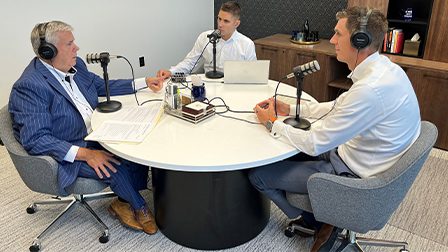
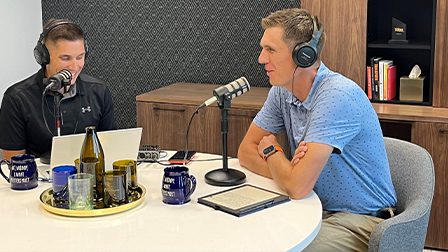
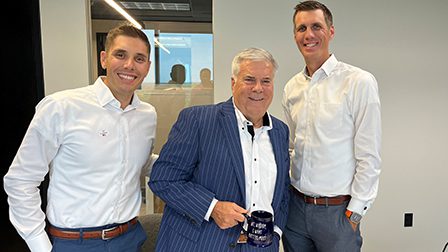
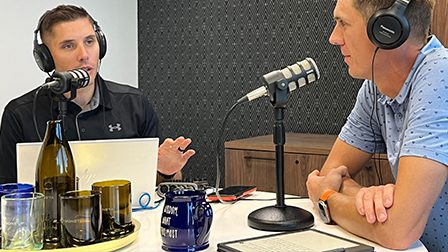
© 2025 Advisory services offered by Moneta Group Investment Advisors, LLC, 100 South Brentwood Blvd., St. Louis, MO 63105 (“MGIA”), an investment adviser registered with the Securities and Exchange Commission (“SEC”). MGIA is a wholly owned subsidiary of Moneta Group, LLC. Registration as an investment adviser does not imply a certain level of skill or training. This is an advertisement. The information contained herein is for informational purposes only, is not intended to be comprehensive or exclusive, and is based on materials deemed reliable, but the accuracy of which has not been verified. Examples contained herein are for illustrative purposes only based on generic assumptions. Given the dynamic nature of the subject matter and the environment in which this communication was written, the information contained herein is subject to change. This is not an offer to sell or buy securities, nor does it represent any specific recommendation. You should consult with an appropriately credentialed professional before making any financial, investment, tax, or legal decision. Past performance is not indicative of future returns. You cannot invest directly in an index. All investments are subject to a risk of loss. Diversification and strategic asset allocation do not assure profit or protect against loss in declining markets. These materials do not take into consideration your personal circumstances, financial or otherwise. Trademarks and copyrights of materials linked herein are the property of their respective owners.

